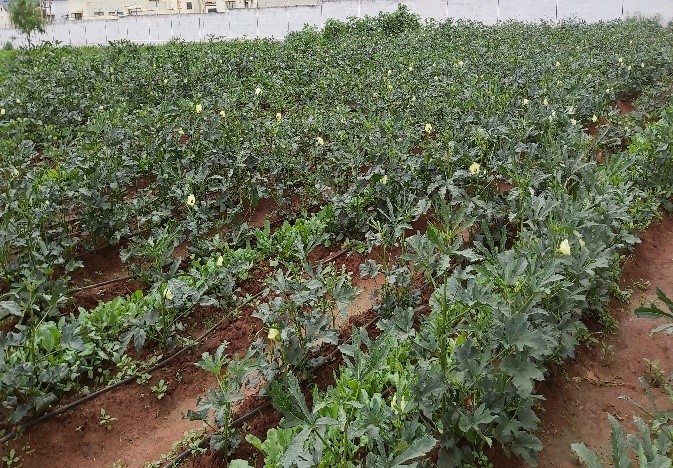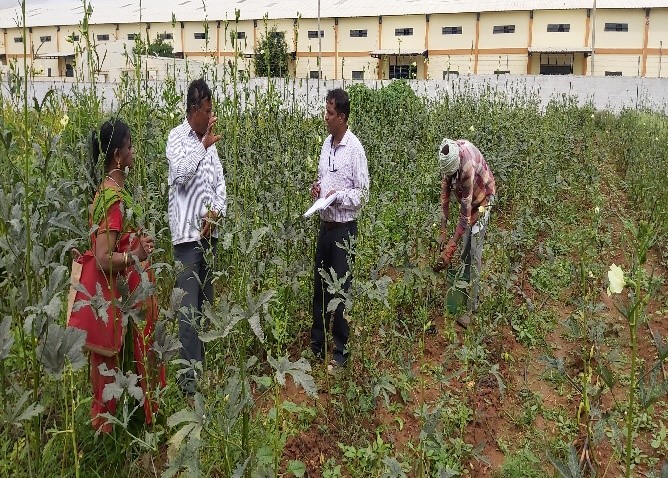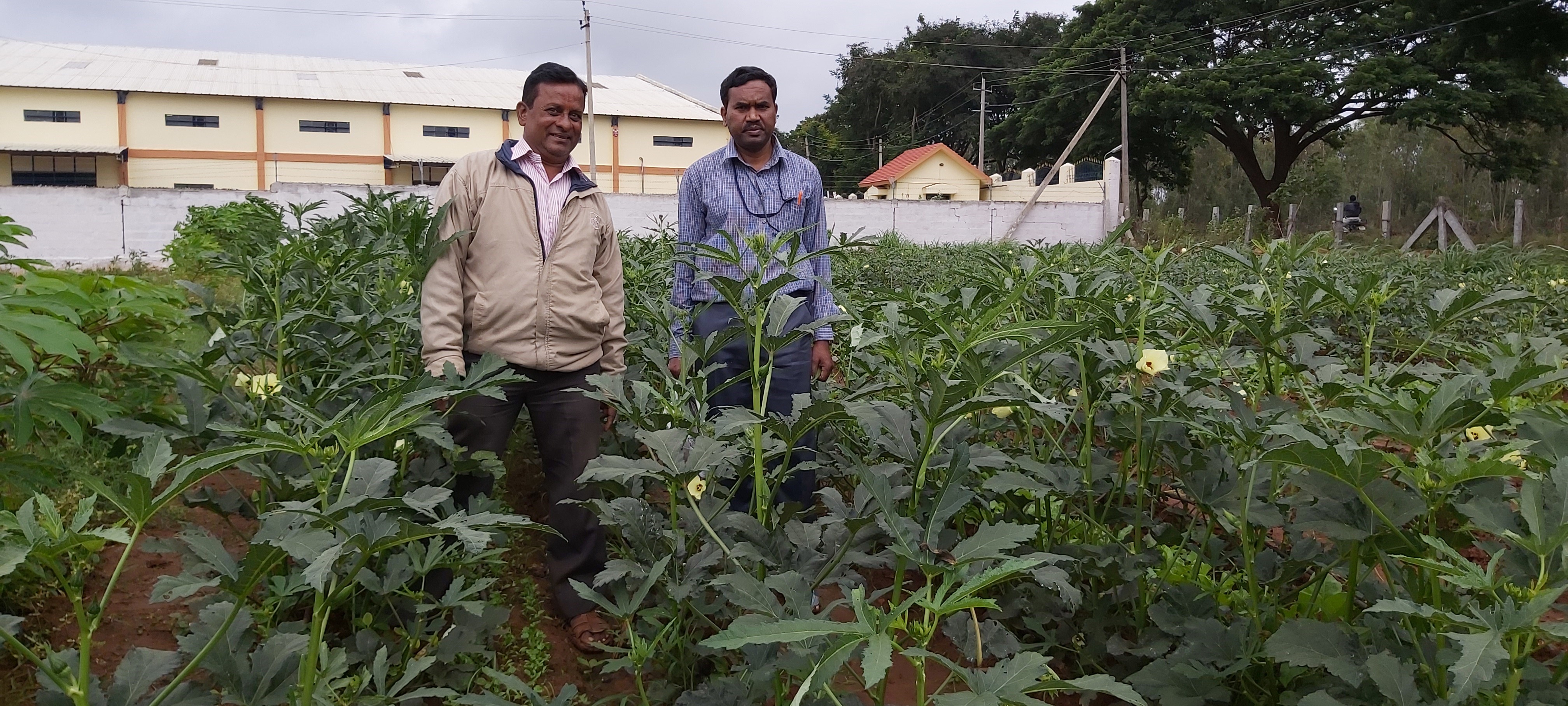Mr.Dhanjay a progressive farmer of Gopalpura village of Hesaraghatta, Bangalore Rural District used to grow all kind of vegteables (brinjal, chilli, okra, palak, coriander, sweetcorn, baby corn, dolichos and beans) in his two acres field throughtout the year depending upon the season and demand in the market under organic way. Earlier he attended one day training programme on “ICAR-IIHR released vegetable varieties/hybrids and other technologies” at IIHR campus, Bangalore. He has been very keen to grow ICAR-IIHR imporved varieties/hybrids in his field and is continuouesly in touch with ICAR-IIHR Scientists (Dr.V.Sankar, Dr M.Pitchi muthu and Dr Achala Paripurna)
After knowing the benefits (early flowering, high yielding, dark green, medium, smooth and tender fruits, excellent cooking quality, nutritionally rich in antioxidant activity and minerals and resistant to Yellow Vein Mosaic virus) of okra F1 hybrid “Arka Nikita”, he wanted to grow this hybrid in his field. Seeds were supplied from ICAR-IIHR for demonstration and sowing was taken during kharif and late kharif seasons of 2019. The farmer wanted to grow okra organically without using any inorganic chmeical fertilzers and pesticdies because he is getting premium price in market for his organically produced vegteables. Hence, based on his request, ICAR-IIHR supplied all kind of organic inputs (Arka Micorbial Consortia, Neem and Pungamia Soap) to raise crop successfully. Apart from IIHR products, he used to prepare biostimulants like botanicals, Panchakavya, Dasha kavya, Cowdung slurry, Jeevamurtha and Agnistra at his farm itself and applied as foliar nutrtion for growth promotion and also control of pest and diseaes. Earliar at the time of field prepartion, he applied organic manures like well decomposed farm yard manure, neem cake, pungamia cake, vermicompost and farm waste manures for basal application. Later on, he applied cowdung slurry, cow urine, wood ash and herbal extracts for top dressing, whenever the crop required.
The farmer realized very good fruit yield in okra i.e. 5.59 tones/acre during kharif season and 5.86 tones/acre during late kharif season. He could sell his produce @ Rs 35 per kg in market constantly till last harvest. He was very happy with the performance of Arka Nikita in terms of better fruit size, fruit weight, yield, less incidence of Yellow Vein Mosaic Disease, premium price and higher net returns. He earned an average net profit of Rs. 1,38,565/- for four months crop duration and very much satisfied. The cost benefit ratio is 1:3.04. Apart from main crop okra, he also used to grow Palak (Arka Anupama) as a inter crop with okra field in and around bunds and channels. From this practices, he harvested around 3900 bundles of Palak per acre and sold out for Rs. 10 per bundle. In this way, he earned additional income of Rs 39,000 per acre. Over all his net income was increased from Rs.1,38,565/- to Rs 1,68,565/- in duration of 120 -135 days. He was very happy about new vegetable cropping system in combination ie. Okra with Palak. He has also motivated other farmers in the village to follow the same combinations of vegetables with ICAR-IIHR varieties/hybrids to get more yield and enhanced income.






